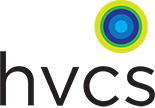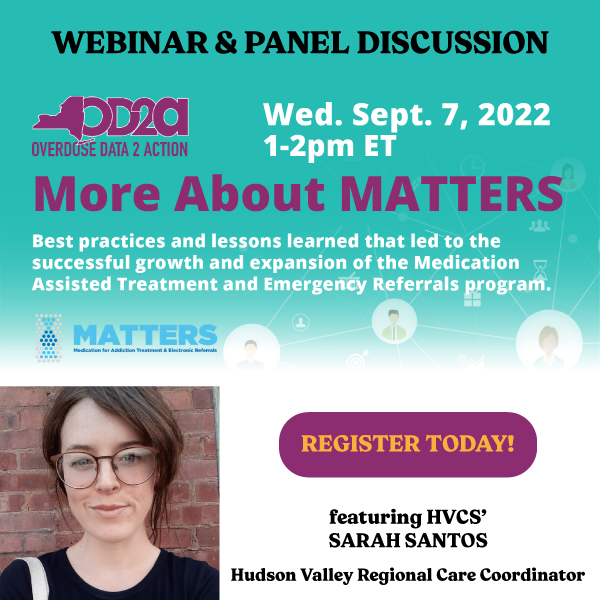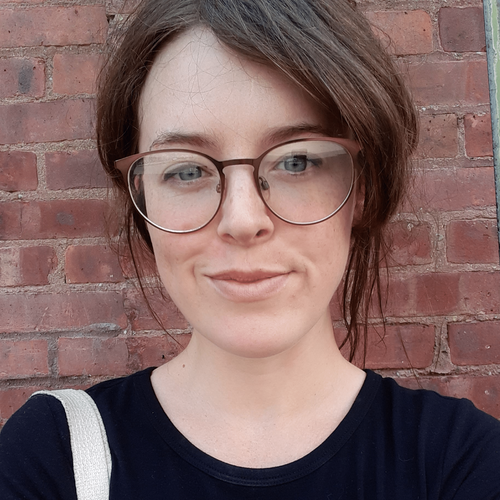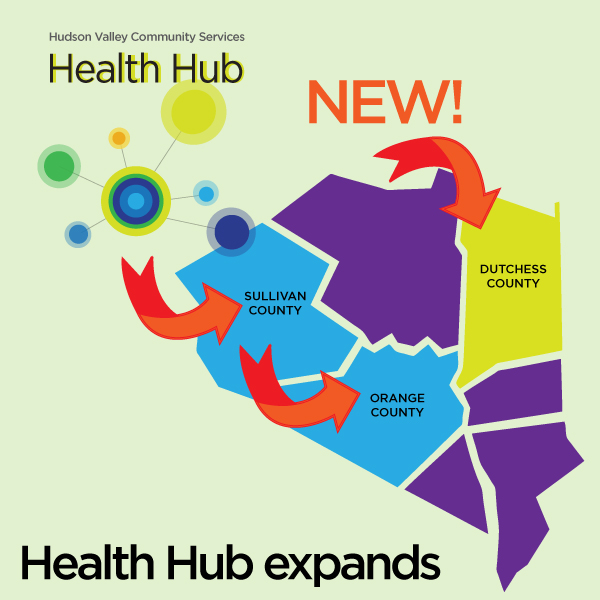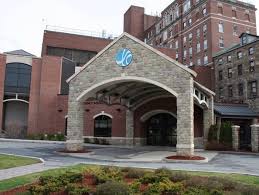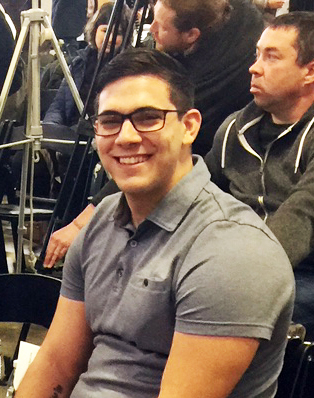September 7, 1-2pm – New York MATTERS is a statewide referral network that has connected over 1,000 individuals to essential medications for opioid use disorder and additional support services. They have developed an electronic referral platform (hosted by the New York State Department of Health) to efficiently refer patients with opioid use disorder from emergency departments along with OB/GYN offices, correctional facilities, inpatient units, pre-hospital settings, etc. to community-based clinics. The app is now available in the Apple and Google Play stores, helping to connect patients, providers, first responders, and community organizations.
Panelists include:
Caleigh Loughran, NYSDOH Program Manager
Matthew Fallico, MSW, NYSDOH Program Coordinator
Sarah Santos, Hudson Valley Regional Care Coordinator with HVCS
Emily Payne, MSPH, NYSDOH Epidemiologist & Data Evaluator
Join and learn more about this program. The panel will briefly describe its roots and reasons for its
success and growth beyond borders and beyond its technical platform. We will explore the data-driven
lessons learned from the growth of the program, the role of community partners and regional care
coordinators, and how it all dovetails with SEPs and Health Hubs. We are hosting this webinar as a meeting format to encourage dialogue and collaboration throughout. This webinar is free to attend.
After registering, you will receive a confirmation email containing information about joining the meeting.
REGISTER TODAY!
